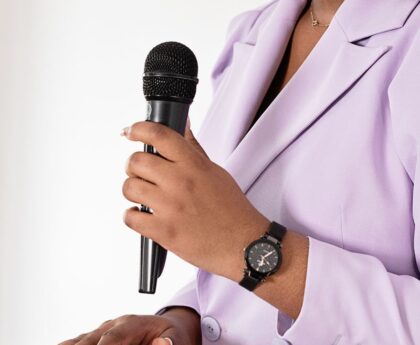Rob McElhenney Opens Up About Neurodevelopmental Disorders and Learning Disabilities
Rob McElhenney, best known for his role in the hit TV show “It’s Always Sunny in Philadelphia,” recently revealed that he has been diagnosed with neurodevelopmental disorders and learning disabilities. The 46-year-old actor took to Twitter to share the news with his fans and announced that he will discuss his diagnosis in an upcoming episode of “The Always Sunny” podcast, alongside his co-stars Glenn Howerton and Charlie Day.
A Message of Support and Solidarity
In his tweet, McElhenney expressed that while it is not something he would typically talk about publicly, he wanted to share his story to let others who may be going through similar challenges know that they are not alone. He reassured his followers that having neurodevelopmental disorders and learning disabilities does not make them “stupid” or “bad,” and that such feelings are untrue.
McElhenney’s openness about his diagnosis quickly garnered an outpouring of support from fans and followers in the comments section of his tweet. Many expressed their gratitude for his honesty, noting that it helps to break the stigma surrounding mental health and learning disabilities.
A Growing Understanding of Neurodevelopmental Disorders
McElhenney’s revelation highlights the importance of raising awareness about neurodevelopmental disorders and learning disabilities. These conditions can significantly impact individuals’ daily lives, affecting their cognitive functioning, attention, and behavior.
Neurodevelopmental disorders, such as attention deficit hyperactivity disorder (ADHD) and autism spectrum disorder (ASD), are characterized by early-onset difficulties in social interaction, communication, and behavior. Learning disabilities, on the other hand, primarily affect an individual’s ability to acquire and use academic skills like reading, writing, and arithmetic.
While the exact cause of these disorders is not fully understood, research suggests that a combination of genetic, environmental, and neurological factors may contribute to their development. Early diagnosis and appropriate support are crucial in helping individuals manage their symptoms and reach their full potential.
The Importance of Sharing Stories
McElhenney’s decision to share his diagnosis publicly serves as a powerful reminder that mental health and learning disabilities are common experiences that should not be stigmatized. By speaking openly about his own journey, he has helped to create a more inclusive and understanding society.
Sharing stories can have a profound impact on individuals struggling with similar challenges. It allows them to feel seen, validated, and less isolated. Moreover, it encourages conversations about mental health and learning disabilities that can lead to greater support and access to resources.
Editorial: The Need for Compassion and Empathy
Rob McElhenney’s announcement serves as a reminder of the importance of compassion and empathy towards individuals with neurodevelopmental disorders and learning disabilities. Rather than judgment or discrimination, society should strive to cultivate understanding, support, and inclusion for all.
It is crucial to recognize that neurodevelopmental disorders and learning disabilities are not indicative of intelligence or character. These conditions can present unique challenges, but with the right accommodations, individuals can lead fulfilling lives and make significant contributions to society.
Education and awareness play a vital role in dismantling misconceptions and stereotypes surrounding mental health and learning disabilities. By fostering an environment of acceptance, we can create a more inclusive society where individuals with neurodevelopmental disorders and learning disabilities can thrive.
Advice: Seeking Diagnosis and Support
If you suspect that you may have a neurodevelopmental disorder or learning disability, it is important to seek professional help for a formal diagnosis. A healthcare provider with expertise in these areas can conduct a comprehensive assessment to determine the most appropriate interventions and accommodations.
Once diagnosed, it is crucial to access the necessary support and resources. Numerous organizations and support groups exist to provide information, guidance, and a sense of community. These resources can help individuals and their loved ones navigate the challenges associated with neurodevelopmental disorders and learning disabilities.
Remember, seeking help is not a sign of weakness but rather a step towards understanding and self-empowerment. You are not alone in your journey, and with the right support, you can overcome obstacles and thrive.
Ultimately, Rob McElhenney’s bravery in sharing his story serves as a call for greater empathy, understanding, and support for individuals with neurodevelopmental disorders and learning disabilities. Let us strive to create a society that embraces diversity and champions the rights and well-being of all its members.

<< photo by Priscilla Du Preez >>
The image is for illustrative purposes only and does not depict the actual situation.
You might want to read !
- Rob McElhenney’s Learning Disabilities: Shedding Light on a Complex Diagnosis
- Susan Boyle suffers minor stroke.
- “Battle in the North: USMNT Takes on Panama in Highly Anticipated Showdown”
- USA vs Panama: Heartbreak for USMNT as Dreams of Progression Shattered
- Jabeur stages stunning comeback, dethrones Rybakina to secure spot in the next round
- Icon of the Seas: Exploring the Majestic Unveiling of the World’s Largest Cruise Ship
- Wife of Huw Edwards alleges him as BBC presenter at heart of …
Title: Revelations by Huw Edwards’ Wife Unveil BBC Presenter at the Epicenter of …
- Decoding Weather Forecasts: Understanding the Meaning of POP
- Emmy Nominations 2023: HBO Reigns Supreme with Succession Leading the Pack




